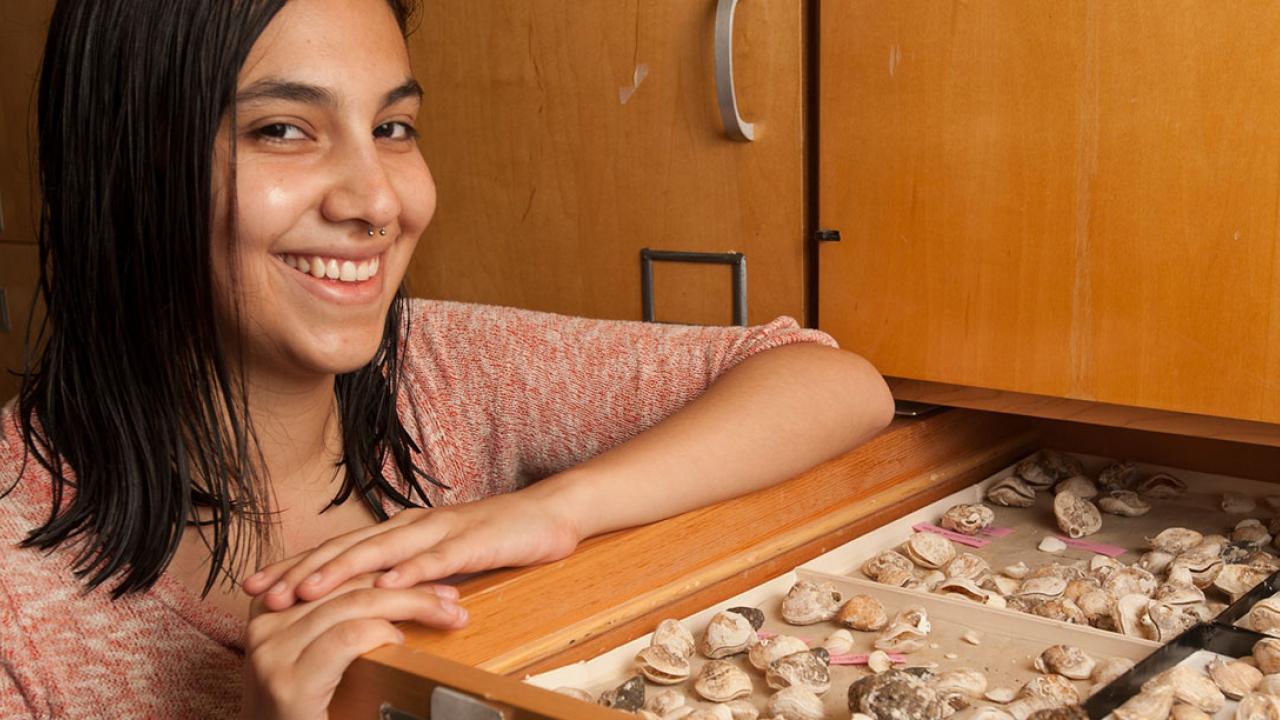Their fields of study are very different: the evolution of marine invertebrates that date back more than 500 million years and the quest to make a new generation of biofuels from yeast.
From Yeast to Biofuels
Julia Ann Easley/video
(1 min 27 sec)
But what UC Davis students Natalia Lopez Carranza and Tonio Garay of Mexico have in common is the program that is supporting their doctoral studies at one of the nation's leading research universities.
UC Davis leads its fellow campuses in enrollment through the UC MEXUS-CONACYT Doctoral Fellowship Program. Together they advance UC President Janet Napolitano's initiative to help UC and Mexican institutions address common issues and educate future leaders.
Students come with financial support
The fellowship provides doctoral students from Mexico with financial support for the high-quality international education and skills training needed to compete and collaborate in the global economy. And it brings some of the most talented graduate students from Mexico to UC Davis, where they also contribute to the diversity of the student body.
"UC Davis has a robust international reputation and faculty committed to collaborative research in Mexico," said Jeffrey Gibeling, vice provost of Graduate Education and dean of Graduate Studies. "In addition, we have strong doctoral programs across the agricultural sciences, environmental sciences and engineering, and these are the areas in which many students from Mexico wish to study."
One in five fellows at UC Davis
Related Stories
Since the program began in 1998, a total of 363 students have been awarded the fellowships; 68 — or almost one in five — have studied at UC Davis. A total of 19 are currently enrolled at UC Davis, and an additional nine are expected to begin doctoral studies on campus this fall.
Garay of Monterrey, Mexico, is working with the fourth largest yeast collection in the world; its curator, Kyria Boundy-Mills; and Bruce German, professor of food science and technology. He is helping to develop biofuels and other products based on yeast fermentation.
"We have treasures there just waiting to be discovered," Garay said of the 8,000 strains in the Phaff Yeast Culture Collection on campus.
After earning a degree in chemical sciences from Tecnológico de Monterrey, Garay worked in industry. He started at UC Davis in 2012, and, with graduation anticipated in 2017, he hopes to set up his own company or work in industry in Mexico or the United States.
Marine fossil biology and evolution
Lopez Carranza of Mexico City, who started her studies at UC Davis two years ago, is working with Sandra Carlson, professor of earth and planetary sciences, who studies the relationships, biology and evolution of living and fossil brachiopods, a group of marine invertebrates.
A graduate of the National Autonomous University of Mexico, Lopez Carranza hopes to later complete a post-doctoral fellowship and return to Mexico to be a researcher or professor.
A partnership between U.S. and Mexico
The doctoral fellowship is a partnership of the UC Institute for Mexico and the United States (UC MEXUS), and Mexico's National Council of Science and Technology (CONACYT), much like the United States' National Science Foundation.
The competitive fellowship covers up to five years of funding for tuition and fees, some health insurance costs and provides a minimum monthly stipend of $1,100.
Other programs for Mexican students
UC Davis also offers the Research Experience Undergraduate for Mexican Students Program. A partnership of the Mexican government and UC Davis, the program helps Mexican undergraduates develop research skills through two-month research internships.
In fall 2014, UC Davis had about 80 undergraduates and 30 graduate and professional students from Mexico.
UC Davis and Mexican researchers collaborate through numerous grants, and four UC Davis programs offer students the opportunity to spend an academic quarter or summer in Mexico.
